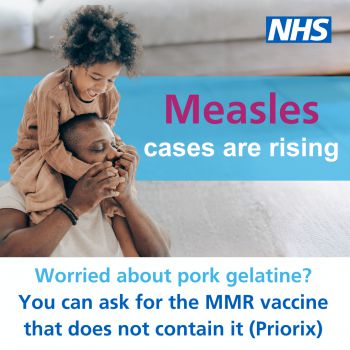It’s never too late to catch up on your MMR vaccination
Posted on behalf of: Student Communications
Last updated: Wednesday, 20 March 2024

Measles is a highly infectious viral disease that spreads very easily and can cause serious problems in some people. Having the MMR vaccine is the best way to prevent it.
The first symptoms of measles include:
- a high temperature
- a runny or blocked nose
- sneezing
- a cough
- red, sore, watery eyes
- Small white spots may appear inside the cheeks and on the back of the lips a few days later. These spots usually last a few days.
A rash usually appears a few days after the cold-like symptoms - The rash looks brown or red on white skin. It may be harder to see on brown and black skin.
Preventing the spread of measles
Measles is spread when an infected person coughs or sneezes. There are things you can do to reduce the risk of spreading or catching it:
- wash your hands often with soap and warm water
- use tissues when you cough or sneeze
- throw used tissues in the bin
- do not share cutlery, cups, towels, clothes, or bedding
The free MMR vaccine is a safe and effective way of protecting against measles, as well as mumps and rubella. Speak to your usual doctor (through the on-campus NHS health centre if you are registered there) to make sure your vaccinations are up to date.
Anyone with symptoms of measles is being advised to stay at home and contact your GP by phone – please do not go to your GP, walk-in centre, or any other healthcare setting without calling ahead, as measles is very infectious.
For further information
You can read more information about Measles on the NHS website or watch this YouTube video.
You can see more about vaccinations and medication on the Student Hub and in this MMR leaflet from UKHSA, which is available in several languages.
